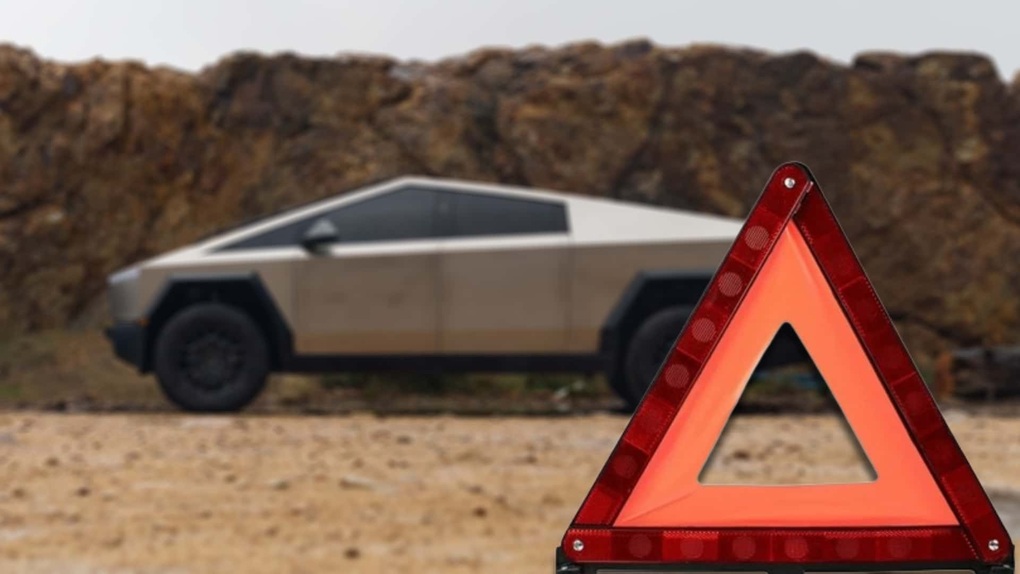
When it comes to electric cars being "stranded on the road", you would immediately think of them running out of battery. While this is true in some cases, a recent survey shows that there are other reasons as well.
VerticalScope, a digital technology company based in Toronto, Canada, which owns the automotive website AutoGuide and several other publications, recently conducted a survey of 1,200 electric vehicle owners. The results showed that 9.1% of the participants had experienced being stranded on the road due to their electric vehicles, but the main reasons were not related to the battery.

Many electric cars are stranded on the road not because of running out of battery (Image: InsideEVs).
Firstly, it is important to note that the sample size of this survey is relatively small, smaller than those conducted by entities like J.D. Power or Recurrent. Therefore, it may not be a definitive indicator of trends in the electric vehicle industry, especially given the increasing number of electric vehicles on the road today.
Furthermore, electric vehicles being stranded on the road are rare occurrences, contrary to popular belief. Nevertheless, the survey results seem to align with the prior experiences of experts from InsideEVs.
The most common reason for being stranded is purely mechanical issues, stemming from the suspension system, engine components, or cooling system due to the use of large battery packs. 6.4% of the surveyed electric vehicle owners cited these issues. 2.1% mentioned software glitches.
This has been a longstanding issue with electric vehicles. Unlike gasoline-powered cars that rely on mechanical systems, electric vehicles rely on software. All critical systems in modern electric vehicles (and even gasoline vehicles) are controlled by software.
This includes the motor, battery management systems, ADAS driving assistance systems, online updates features, etc. Ensuring smooth operation of all these systems is not an easy task. Many automakers have faced hurdles in this area, including Volkswagen, Rivian, and General Motors (GM).
Only 0.6% of the survey participants reported their vehicles being stranded due to running out of battery. This translates to roughly 7 out of 1,200 surveyed individuals, indicating that electric vehicle owners are becoming more adept at planning, charging infrastructure has improved, and the likelihood of running out of battery is rare.
While the fear of running out of battery on the road is real, it seems to not be a significant concern for electric vehicle owners. It is no longer a major worry, especially with the average American driving only about 68 km per day, while many electric models now offer a range of over 480 km per charge.
The survey results also show that Tesla and BMW electric vehicles are more reliable than those from other manufacturers. Only 7% of Tesla owners and 5% of BMW owners reported being stranded. None of the Tesla owners experienced software issues. Owners of GM vehicles like the Chevy Bolt EV, Silverado EV, and GMC Hummer EV, as well as Fisker and Nissan owners, faced the most issues.
Hãy là người đầu tiên bình luận!
Bình luận: